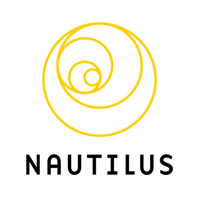
Written by Bonnie Tsui.
James Doty is not a subject under study at the altruism research center that he founded at Stanford in 2008, but he could be. In 2000, after building a fortune as a neurosurgeon and biotech entrepreneur in Silicon Valley, he lost it all in the dotcom crash: $75 million gone in six weeks. Goodbye villa in Tuscany, private island in New Zealand, penthouse in San Francisco. His final asset was stock in a medical-device company he’d once run called Accuray. But it was stock he’d committed to a trust that would benefit the universities he’d attended and programs for AIDS, family, and global health. Doty was $3 million in the hole. Everyone told him to keep the stock for himself. He gave it away—all $30 million of it. “Giving it away has had to be the most personally fulfilling experience I’ve had in my life,” Doty, 58, said on a recent sunny afternoon at Stanford. In 2007, Accuray went public at a valuation of $1.3 billion. That generated hundreds of millions for Doty’s donees and zero for him. “I have no regrets,” he said.
So what exactly is wrong with Doty? Is it normal for a human being to commit a generous act that helps others and not himself? Or is his selfless act merely an act of veiled self-interest? Anthropologists and evolutionary biologists have been wrestling with these questions for decades. Recent research suggests it’s more complicated than that—that evolution has pushed us toward a trait that binds communities and helps them prosper, and that altruistic acts promote individual well-being in biologically measurable ways. These are precisely the kinds of issues and questions that motivated Doty to form—with a seed donation of $150,000 from the Dalai Lama, whom Doty had met in a chance encounter—the Center for Compassion and Altruism Research and Education, or CCARE, part of Stanford’s School of Medicine.
In the past six years, CCARE has distinguished itself from other research centers because it’s determinedly multidisciplinary. Its affiliated scientists have conducted studies in areas from neuroscience and psychology to economics and “contemplative traditions” like Buddhism. But CCARE is distinguished in another way: Many of its core findings mirror Doty’s own life. Emiliana Simon-Thomas, a neuroscientist, the science director of the Greater Good Science Center at the University of California, Berkeley, and former associate director of CCARE, sees Doty as a remarkable embodiment of what researchers are learning about altruism. “He rose to absurd riches and found that having every possible need met isn’t better,” she said. “That kind of question motivates him. He’s gone to the extremes of the pendulum, and he’s trying to find the place in between that will bring him the most rich and authentic sense of purpose.”
To read the full article, click here.

Leave a Reply